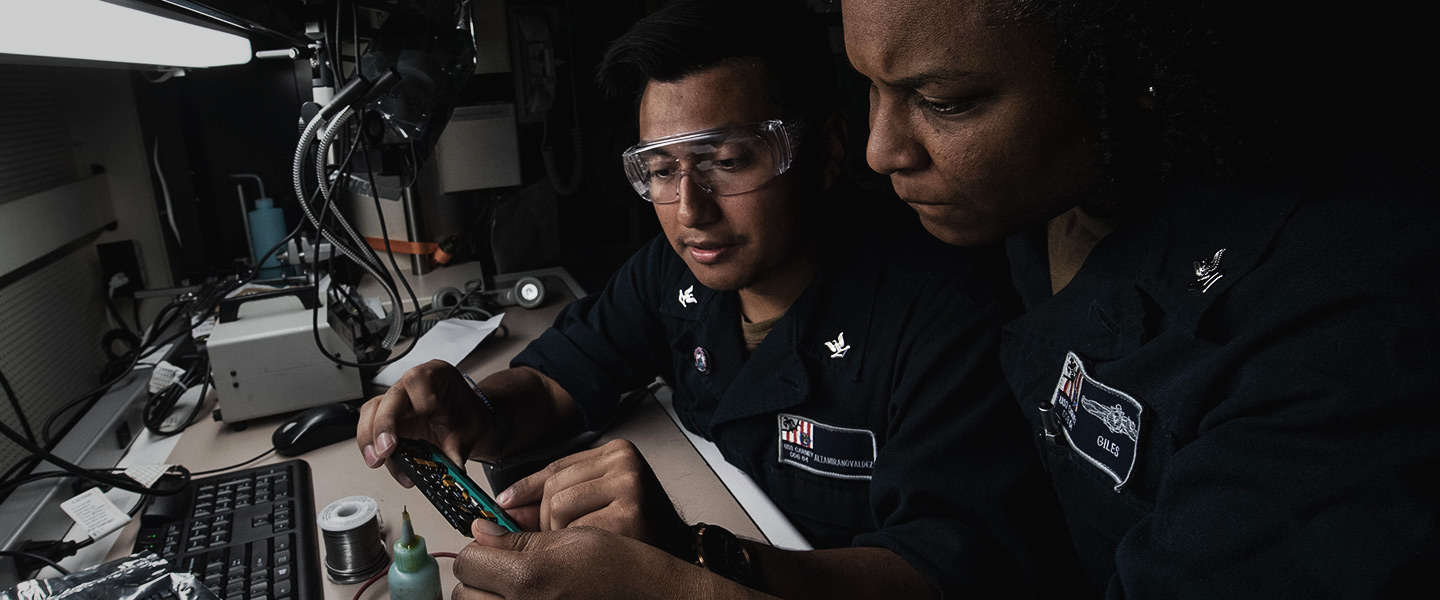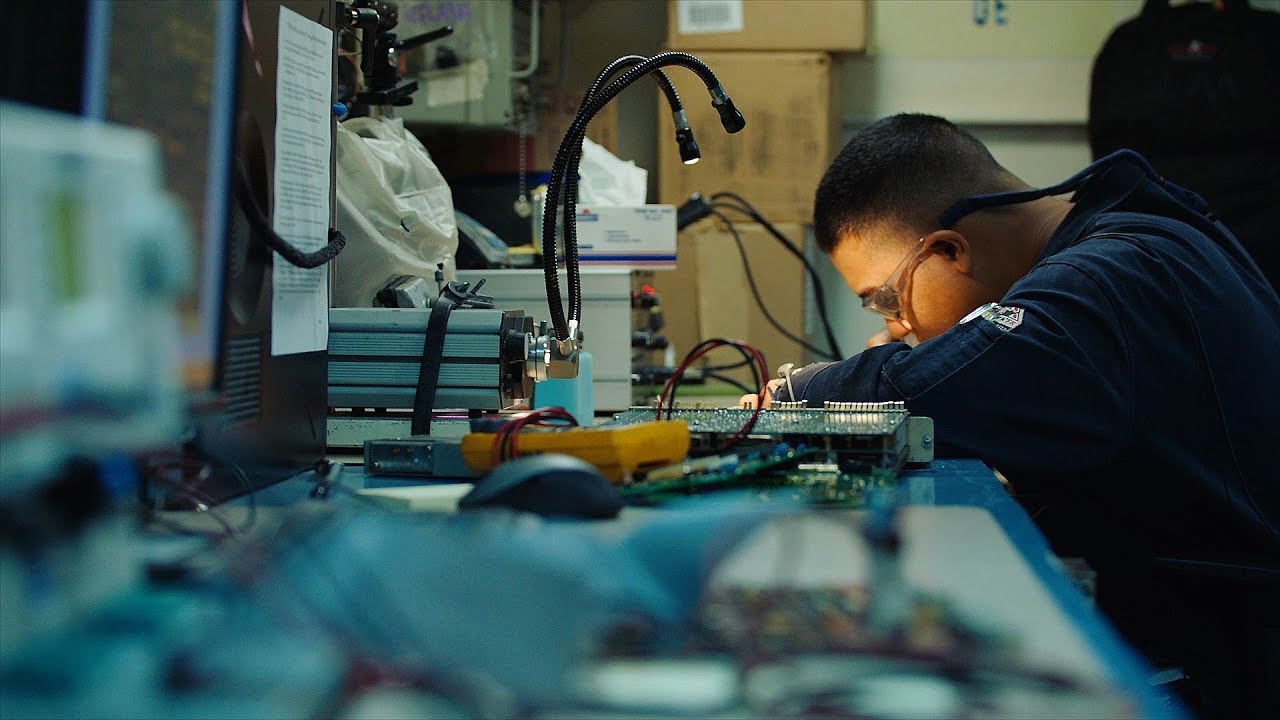What to Expect
More Information
Responsibilities
Electronics Technicians (ET) are trained in computer, aerospace and electrical engineering to maintain combat readiness across a wide variety of complex ship and aircraft systems. As an ET, your responsibilities may include:
- Detecting enemy planes and ships, and determining target distance
- Maintaining, repairing and calibrating all electronic equipment used to detect, track, and identify adversaries, and for electronic countermeasures
- Maintaining, repairing and calibrating electronic equipment including radar, communications and navigation equipment
- Using and maintaining hand tools and portable power tools
Work Environment
As a Navy Electronics Technician, you may serve at sea or ashore, repairing systems and equipment on Navy surface ships and landing craft at bases and ports of call. You may also participate in humanitarian aid missions such as disaster response.
Training & Advancement
Upon completion of initial training at Recruit Training Command Great Lakes (known as Boot Camp), you’ll report for specialized training, including:
Apprentice Technical Training (11 weeks) in Great Lakes, IL, for training in basic electronics and electronic circuitry, safety, digital theory, microcomputers, fiber optics, equipment and trouble-shooting techniques.
ET "A" School (19 weeks) in Great Lakes, IL, for training in communications software and hardware including satellite communication, transmitters/receivers and radar.
Following “A” School, ETs may receive additional specialized training at “C” School. After you complete training, you may be assigned to a fleet or shore station in the United States or abroad.
Promotion opportunities are regularly available but competitive and based on performance.
Advanced Training
Advanced training as an Electronics Technician may also be available during later stages of your career. For those with further leadership aspirations and a college degree, Officer roles may be available, providing opportunities to lead and train others.
Post-Service Opportunities
Specialized training received and work experience gained in the course of service can lead to valuable credentialing and occupational opportunities in related fields in the civilian world, such as electrical engineering, computer and network support, telecommunications and information security.
Education Opportunities
Beyond offering access to professional credentials and certifications, Navy technical and operational training as an Electronics Technician can translate to credit hours toward a bachelor’s or associate degree through the American Council on Education.
You may also continue your education through undergraduate degree opportunities like the Navy College Program and Tuition Assistance and the Post-9/11 GI Bill.
Qualifications & Requirements
A high-school diploma or equivalent is required to become an Enlisted Sailor and an Electronics Technician. You must also be a U.S. citizen eligible for security clearance.
ET applicants should have strong arithmetic, writing and speaking skills, and well as the ability to work with computers and electronic devices. You should be able to perform detailed work, keep accurate records and work well with others as part of a team.
Physically, you should have good manual dexterity, normal color perception and some physical strength.
General qualifications may vary depending upon whether you’re currently serving, whether you’ve served before or whether you’ve never served before.
Part-Time Opportunities
There are no part-time jobs as a Navy Reserve Sailor in this role. Go back to Careers to find other jobs that have a Reserve component. You can also find out more about what life is like as a Reserve Sailor in the Navy.

































































































































